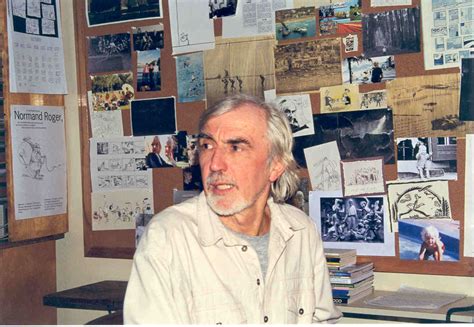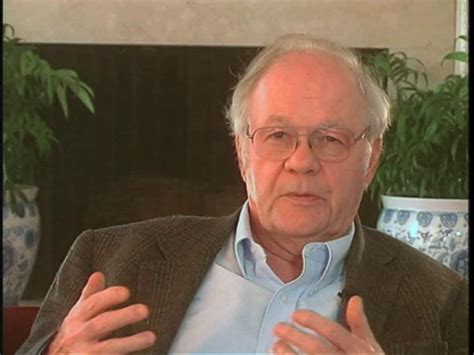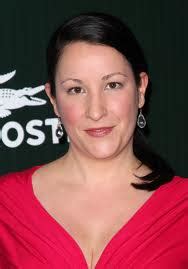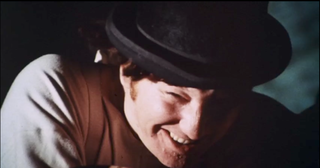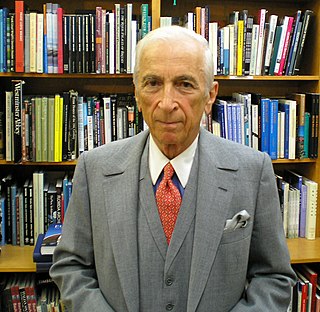Top 241 Deprivation Quotes & Sayings - Page 4
Explore popular Deprivation quotes.
Last updated on April 17, 2025.
If I regarded my life from the point of view of the pessimist, I should be undone. I should seek in vain for the light that does not visit my eyes and the music that does not ring in my ears. I should beg night and day and never be satisfied. I should sit apart in awful solitude, a prey to fear and despair. But since I consider it a duty to myself and to others to be happy, I escape a misery worse than any physical deprivation.
But the human body has an enormous capacity for adjusting to trying circumstances. I have found that one can bear the unbearable if one can keep one's spirits strong even when one's body is being tested. Strong convictions are the secret of surviving deprivation; your spirit can be full even when your stomach is empty.
Quantum wellness isn’t about deprivation and it’s not about perfection. It is about pointing yourself in the direction of growth, training yourself to get comfortable with your highest potential, and then taking small steps to support that shift. It’s about showing up for yourself, day by day, and then one day finding that you’ve undergone a transformation.
Democratic communities have a natural taste for freedom: left to themselves they will seek it, cherish it, and view any deprivation of it with regret. But for equality their passion is ardent, insatiable, incessant, invincible: they call for equality in freedom; and if they cannot obtain that, they still call for equality in slavery.
Had today's technophobic zealots [environmental activists] been in charge in previous centuries, we would have to roll human progress back to the Middle Ages - and beyond, since even fire, the wheel and organic farming pose risks, and none would have passed the "absolute safety" test the zealots demand. Putting them in charge now would mean an end to progress, and perpetual deprivation for inhabitants of developing nations.
Life would be impossible on such a planet. It wouldn't get enough heat and light, and if it rotated there would be total darkness half of every day. There wouldn't be any native inhabitants. You couldn't expect life - which is fundamentally dependent on light - to develop under such extreme conditions of light deprivation. Half of every axial rotation spent in Darkness! No, nothing could exist under conditions like that.
Behavior used to be reinforced by great deprivation; if people weren't hungry, they wouldn't work. Now we are committed to feeding people whether they work or not. Nor is money as great a reinforcer as it once was. People no longer work for punitive reasons, yet our culture offers no new satisfactions.
In the event of a violent revolution, we would be sorely outnumbered. And when it was all over, the Negro would face the same unchanged conditions, the same squalor and deprivation-the only difference being that his bitterness would be even more intense, his disenchantment even more abject. Thus, in purely practical as well as moral terms, the American Negro has no rational alternative to nonviolence.
Humility has nothing to do with depreciating ourselves and our gifts in ways we know to be untrue. Even "humble" attitudes can be masks of pride. Humility is that freedom from our self which enables us to be in positions in which we have neither recognition nor importance, neither power nor visibility, and even experience deprivation, and yet have joy and delight. It is the freedom of knowing that we are not in the center of the universe, not even in the center of our own private universe.
There's no way in which you can ever win a war against terror. As long as there are conditions in many parts of the world that make people desperate: poverty, disease, ignorance, etc. I hope that we will discover soon, that we can survive, only together. We can prosper only together. And I think people are beginning to realize this, that you can't have pockets of prosperity in one part of the world and huge deserts of poverty and deprivation and think you can have a stable, secure world.
one way to keep people close to you is by not giving them enough. ... with people who give a lot of themselves, you sometimes lean back - but with people who give little you often lean forward, as if they're a spigot in the desert and you're the empty cup. It is the tropism of deprivation: We lean toward those who do not give.
Given Freudian assumptions about the nature of children and the biological predestination of mothers, it is unthinkable for mothers voluntarily to leave their babies in others' care, without guilt about the baby's well-being and a sense of self-deprivation. Mothers need their babies for their own mental health, and babies need their mothers for their mental health--a reciprocal and symbiotic relationship.
When you feel discouraged or simply lazy, as is bound to happen sometimes, remember the millions of people in the world who have not had your privilege. Remember the poor and obscure lives of those countless millions who suffer from every sort of deprivation and frequently find themselves the unwilling victim of wars, and a variety of cruelties, perpetuated by man on man. Is it not significant that the first bid for self realization, among the poor and downtrodden, is to assert their right to education?
Something amazing happens when the rest of the world is sleeping. I am glued to my chair. I forget that I ever wanted to do anything but write. The crowded city, the crowded apartment, and the crowded calendar suddenly seem spacious. Three or four hours pass in a moment; I have no idea what time it is, because I never check the clock. If I chose to listen, I could hear the swish of taxis bound for downtown bars or the soft saxophone riffs that drift from a neighbor's window, but nothing gets through. I am suspended in a sensory deprivation tank, and the very lack of sensation is delicious.
When you have Enough, you have everything you need. There's nothing extra to weigh you down, distract, or distress you. Enough is a fearless place. A trusting place. An honest and self-observant place ... To let go of clutter, then, is not deprivation; it's lightening up and opening up space and time for something new and wonderful to happen.
We often wonder why God gives and takes, constricts and expands. What we forget is that human beings understand things by their opposites. Without dark, we can’t understand light. Without hardship, we wouldn’t *experience* ease. Without the existence of deprivation and loss, we couldn’t grasp the need for gratitude or the virtue of patience. And without separation, we wouldn’t taste the sweetness of reunion. Glory be to the one who gives—even when He takes.
I know that if I feel any deprivation or fear [about money], the solution is to give. The solution is to go find some mothers on the streets of San Raphael and give them tens and twenties and mail off another $50 to Doctors Without Borders to use for the refugees in Kosovo. Because I know that giving is the way we can feel abundant. Giving is the way that we fill ourselves up.... For me the way to fill up is through service and sharing and getting myself to give more than I feel comfortable giving.
The global phenomenon of poverty tourism - or 'poorism' - has become increasingly popular during the past few years. Tourists pay to be guided through the favelas of Brazil and the shantytowns of South Africa. The recently opened Los Angeles Gang Tour carries visitors through battle-scarred territories of urban violence and deprivation.
The time has also come to recognize the painful truth that traditional Judeo-Christian moral values of pain and pleasure in human relationships have contributed substantially to child abuse and to the prevalence of physical violence in Western civilization.... The religious system upon which our culture is based holds that pain, suffering and deprivation are moral and necessary to save one's soul and make one a 'good person.' The crucifixion and scourging of Christ are examples.
Here is an educational bombshell: Take from all of today's industrial nations all their industrial machinery and all their energy-distributing networks, and leave them all their ideologies, all their political leaders, and all their political organizations, and I can tell you that within six months, two billion people will die of starvation, having gone through great pain and deprivation along the way.
I tell the kids that, even in a childhood marked by despair and deprivation, I knew that no matter what happened, I still had my family, or at least the remnants of a family ripped apart by divorce and then glued back together in various odd arrangements through a series of ill- advised remarriages. It was good to know I had a solid foundation.
Virtues are in the middle, the royal way about which the saintly elder (Saint Basil the Great) said, "Travel on the royal way and count the miles." As I said, the virtues are at the midpoint between excess and laxness. That is why it is written, "Do not turn to the right or the left" (Prov 4:27) but travel on the "royal way" (Num. 20:17). Saint Basil also says, "The person who does not allow his thoughts to incline towards excess or deprivation but directs it to the midpoint, that of virtue, is upright in heart."
Throughout my life, I have tried to share my belief that getting and staying healthy doesn't have to feel like work. My life is not about deprivation; I don't diet or slave away in a gym. What I do is eat clean, nutritious, real food. I enjoy delicious meals with healthy fats, I eat until I am full and satisfied, and I remain thin.
Labor produces marvels for the rich but it produces deprivation for the worker. It produces palaces, but hovels for the worker. It produces beauty, but deformity for the worker. It replaces labor by machines, but it throws one section of the workers back to barbaric labor, and it turns the remainder into machines.
We're in crisis mode as black actresses. It's not only in the sheer number of roles that are offered and that are out there, but the quality of the roles. The quality - and therein lies the problem. We're in deprivation mode because me, Alfre and Phylicia, we're in the same category. Whereas if you take a Caucasian actress, you have the one who are the teens, in their 20s, 30s, 40s, 50s - they're all different. There are roles for each of them. But you only have two or three categories for black actresses.
Those who take to guns could do so due to deprivation, suppression, or historical legacy. The Afghans have lived through violence for centuries, by the Mughals, the Russians, their own people, so they have always had to fight for freedom... we cannot take away the context. But they legitimised it by using jihad, a religious sanction, so they could be seen as mujahids, fighting for Allah. And you cannot say there is nothing concrete.
I think the best way to listen to my music is through recording. I would love to be one of those artists where you can go into a coffee shop and watch people pass by and then my music is in their ears. Not necessarily a sensory deprivation thing, but that's cool too. Unfortunately in order to focus on nobody else, you would probably have to go into a dark room and just sit there and listen to it.
If one is going to offer children stories that underneath the story must be something that will inform, stimulate and guide, I love to be on board. I think anything that resonates with history, as does The Jungle Book and Watership Down, reflects patterns of behavior, power struggles, deprivation, migration, survival, joy, love, betrayal, and all of these things. It's tragic that children are encouraged to ignore history. We ignore history and any literature that is historically based in history. Even though both of those films involved animals, of course they reflect human behavior.
[Libertarians] don't denounce what the state does, they just object to who's doing it. This is why the people most victimized by the state display the least interest in libertarianism. Those on the receiving end of coercion don't quibble over their coercers' credentials. If you can't pay or don't want to, you don't much care if your deprivation is called larceny or taxation or restitution or rent. If you like to control your own time, you distinguish employment from enslavement only in degree and duration.
Self-interest and mutual interest are inextricably linked. National interests can best be advanced through collective action, ... Calculate not just the human misery of the poor themselves. Calculate our loss: The aid, the lost opportunity to trade, the short-term consequences of the multiple conflicts; the long-term consequences on the attitude to the wealthy world of injustice and abject deprivation amongst the poor.
I think everybody knows that Africa is in a very deep crisis. There is economic misery and social deprivation and that Africa needs help but the question then is how. And also we have to make sure that we don't repeat old mistakes; this help is only short term. It doesn't address Africa's long-term fundamental needs and how to put Africa on the right track to development. What Africa needs to do is to grow, to grow out of debt.
A Resource-Based Economy is in the application of the methods of science with human concern and environmental concern. If we used the scientific method throughout the world, the probability of war drops to zero. The probability of human suffering disappears. Deprivation, poverty, crime - all those things tend to disappear because there's no basis. I'm strictly concerned with the environment that people are raised in and if that environment is altered, so will behaviors be altered.
Other than his ex-wife and despite appearances with a series of cultivated blondes, Edward de Bono has never publicly aligned himself with a woman. 'I’m looking for a fat, cross-eyed hunchback,' he explains, stifling a giggle. 'A prosthetic hump would do.' His delight evaporates when asked about his three grandchildren. 'Am I a doting grandfather?' He pauses. 'I’m a … something grandfather, yes.' The fact that De Bono remains unperturbed by this lack betrays an emotionally austere childhood, and his passions for play, toys, and bad jokes tell of the same deprivation.
When you have a family as big as mine, there are many things that affect my family members, in many different ways. It could be high blood pressure, it could be cholesterol, it could be obesity, it could be sleep deprivation or sleep apnea. An illness is an illness, especially if it affects younger kids. Illnesses affect your family and they impact you because you want to do the best you can to help your family member become more healthy, just as my family members want me to be healthy.
How much can we ever know about the love and pain in another's heart? How much can we hope to understand those who have suffered deeper anguish, greater deprivation, and more crushing disappointments than we ourselves have known? Even if the world's rich and powerful were to put themselves in the shoes of the rest, how much would they really understand the wretched millions suffering around them? So it is when Orhan the novelist peers into the dark corners of his poet friend's difficult and painful life: How much can he really see?
For too long we have been protecting the ones who have hurt us by minimizing our trauma and deprivation. It's time to stop protecting them and start to protect ourselves. We have been told and feel that we are responsible for their emotional well-being. We are not. We are responsible only for ourselves.
The first time we ever lit up a suit was on Garrett. He was the first finished costume that we had, the "Sam" character. And it brought tears to my eyes, because you're working so hard to make something happen and you're just in there, and you're delirious with sleep deprivation. To see it work, to see his reaction, made it all worthwhile.
Now let me be clear; millions of women around the world nurse their children beautifully for years without giving anybody else a hard time about it. Teat Nazis are a solely western upper-middle-class phenomenon occurring when highly ambitious women experience deprivation from outside modes of achievement.
Hunger is the worst form of deprivation of a human being. Although inability to access food is the immediate cause of hunger, the real cause in most of the incidents of hunger is lack of ability to pay for food. If we are looking for ways to end hunger then we should be looking at ways to ensure a reasonable level of income for all
The United States remains the last best hope for a mankind plagued by tyranny and deprivation. America is no stronger than its people -- and that means you and me. Well, I believe in you, and I believe that if we work together, then one day we will say, "We fought the good fight. We finished the race. We kept the faith." And to our children and our children's children, we can say, "We did all what could be done in the brief time that was given us here on earth.".
…Forgive us, O Lord, we acknowledge ourselves as type of the common man, Of the men and women who shut the door and sit by the fire; Who fear the blessing of God, the loneliness of the night of God, the surrender required, the deprivation inflicted; Who fear the injustice of men less than the justice of God; Who fear the hand at the window, the fire in the thatch, the fist in the tavern, the push into the canal, Less than we fear the love of God.
Too often in the past, we have thought of the artist as an idler and dilettante and of the lover of arts as somehow sissy and effete. We have done both an injustice. The life of the artist is, in relation to his work, stern and lonely. He has labored hard, often amid deprivation, to perfect his skill. He has turned aside from quick success in order to strip his vision of everything secondary or cheapening. His working life is marked by intense application and intense discipline.
I see now how things even up, how they are squared away, and how they balance under the law of love and justice. No year of life is emotionally, spiritually or even materially, all drought or all rainfall; nor is it all sun. The road turns a little every day, and one day there's a sudden twist we didn't dream was there, and for every loss there is somewhere a gain, for every grief a happiness, for every deprivation a giving.
Tiffany knew what the problem was immediately. She'd seen it before, at birthday parties. Her brother was suffering from tragic sweet deprivation. Yes, he was surrounded by sweets. But the moment he took any sweet at all, said his sugar-addled brain, that meant he was not taking all the rest. And there were so many sweets he'd never be able to eat them all. It was too much to cope with. The only solution was to burst into tears.
For three million years we were hunter-gatherers, and it was through the evolutionary pressures of that way of life that a brain so adaptable and so creative eventually emerged. Today we stand with the brains of hunter-gatherers in our heads, looking out on a modern world made comfortable for some by the fruits of human inventiveness, and made miserable for others by the scandal of deprivation in the midst of plenty.
I'm trying to make a primitive painting. I'm trying to summon the archaic. I want to enter into a primitive situation. This is my protest against the sensory deprivation that we experience, which is due to this tendency towards globalization, towards homogenization, towards the generic - a technological standard rather than an aesthetic standard. I'm mining history, trying to regenerate a pictorial situation that is more humanistic. It's not about commodification, it's not about fitting into some sort of corporate structure. It's opposed to that direction.
Like his admirer Samuel Beckett, Johnson locates his voices among conditions of such deprivation that even the most miserable memories are gilded by comparison: this paradox fuels equal parts of comedy and pathos. Never sentimental, at once corrosive and elegiac, House Mother Normal is a remarkable achievement.
After working with many nutritionists, reading books, and practicing trial and error on my own body, I have finally found a way to control my weight without deprivation. I call my program 'Somersizing,' and Somersizing is not a diet. Diet is a nasty four-letter word that conjures up negative thoughts of sacrifice and obsession and guilt.
He believed that all people existed behind varying layers of armor which, like the archaeological layers of earth itself, reflected the historical events and turbulence of a lifetime. An individual's armor that had been developed to resist pain and rejection might also block a capacity for pleasure and achievement, and feelings too deeply trapped might be released only by acts of self-destruction or harm to others. Reich was convinced that sexual deprivation and frustration motivated much of the world's chaos and warfare.
[On Marilyn Monroe:] I think my response to her death was the common one: it came to me with the impact of a personal deprivation but I also felt it as I might a catastrophe in history or in nature; there was less in life, there was less of life, because she had ceased to exist. In her loss life itself had been injured.
Capitalism has created a situation called scarcity. And that scarcity is not natural, it's socially induced. Along with that sense of scarcity, or feeling of scarcity, is a feeling of economic insecurity. Along with that is a feeling of deprivation... And unless we can demonstrate that that feeling is not justified technologically, we will not be able to speak intelligently to the great majority of people and reorganize our economy so that we really know what needs are rational and human and what have been created, almost fetishisticaly, by the capitalist economy.








